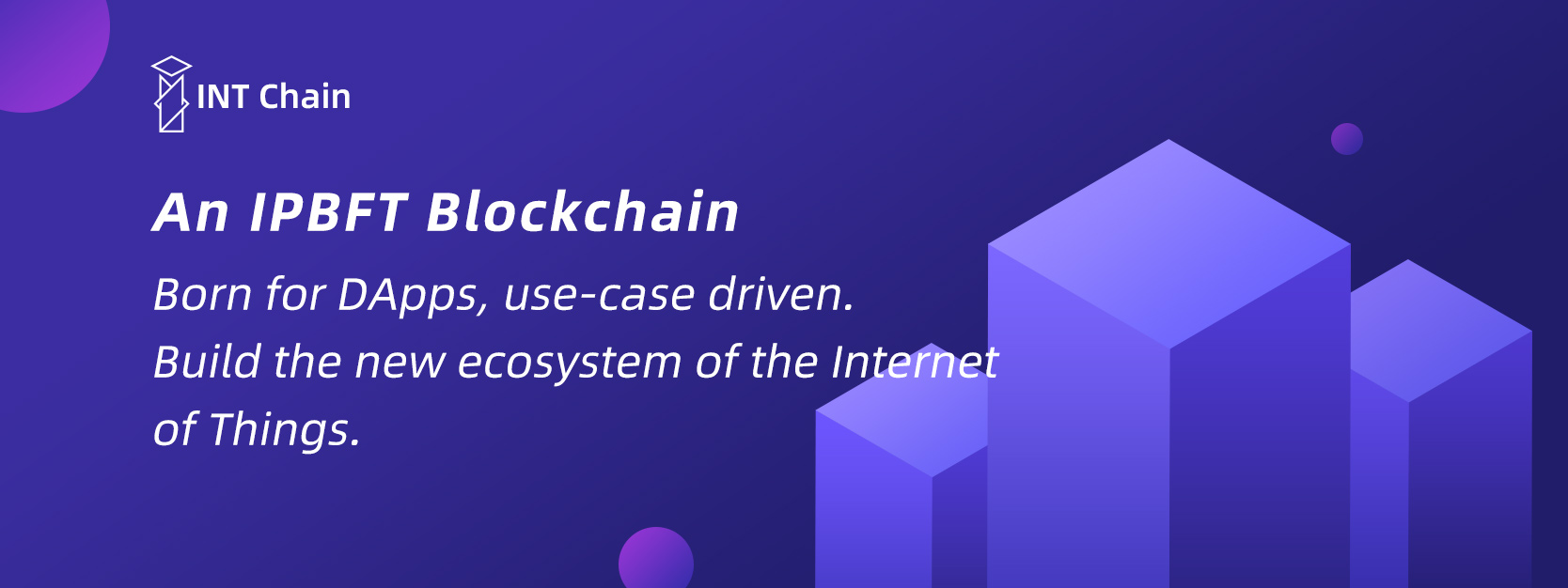# Packages
# README
INT Chain

INT Chain is the world's first bottom up new-generation blockchain of things (BoT) communication standard and base application platform. The ecosystem is specifically designed for easy integration with any IoT protocol.
To both improve and encourage device interconnectivity, we have built an economy driven ecosystem by providing token-incentives through a decentralized TCP/IP based architecture of IoT. This new business model, molded by IoT devices, will support an entirely new ecosystem of the Internet of Things.
Install
Latest Version
The latest INT Chain version is v4.2.0
Install Go
Go 1.14+ is required for building and installing the INT Chain software.
Install Go by following the official docs.
Remember to set your $GOPATH, $GOBIN, and $PATH environment variables, for example:
mkdir -p $HOME/go/bin
echo "export GOPATH=$HOME/go" >> ~/.bashrc
echo "export GOBIN=$GOPATH/bin" >> ~/.bashrc
echo "export PATH=$PATH:$GOBIN" >> ~/.bashrc
source ~/.bashrc
Verify that Go has been installed successfully
go version
Install C compiler
You can install C compiler by your favourite package manager.
Install intchain
After setting up Go and C compiler correctly, you should be able to compile and run intchain.
Make sure that your server can access to google.com because our project depends on some libraries provided by google. (If you are not able to access google.com, you can also try to add a proxy: export GOPROXY=https://goproxy.io)
git clone --branch testnet https://github.com/intfoundation/intchain
cd intchain
make intchain
If your environment variables have set up correctly, you should not get any errors by running the above commands.
Now check your intchain version.
intchain version
Running intchain
intchain is the entry point into the INT Chain network(main, test or private network). It can be used by other processes as a gateway into the INT Chain network via JSON RPC endpoints exposed on top of HTTP, WebSocket and/or IPC transports.
We've enumerated a few common command to let you run your own intchain instance quickly. If you want to look over all command line options, please use intchain --help
Main network
The most common condition is that users want to simply interact with the INT Chain network: create accounts; transfer funds; deploy and interact with contracts.
intchain
Then you can attach to an already running intchain instance with intchain attach, and you can invoke all official methods.
intchain attach <datadir>/intchain/intchain.ipc
Test network
For developers, you would like to deploy contracts for testing, but you do not want to do that with real money spending. In other words, instead of attaching to the main network, you want to join the test network with your node, which is fully equivalent to the main network.
intchain --testnet
Specifying the --testnet flag, will reconfigure intchain instance a bit:
- Instead of using the default data directory(
~/.intchain/intchainon Linux for example),intchainwill usetestnet(~/.intchain/testneton Linux). This means that attaching to a running testnet node requires the use of a custom endpoint(intchain attach <datadir>/testnet/intchain.ipc). - The client will connect to the test network, which uses different bootnodes, different network IDs and genesis file.
Resources
- Explorer: http://titansexplorer.intchain.io/#/
- Wallet: http://titanswallet.intchain.io/#/
- Document: https://titansdocs.intchain.io/
Contribution
See the contribution






